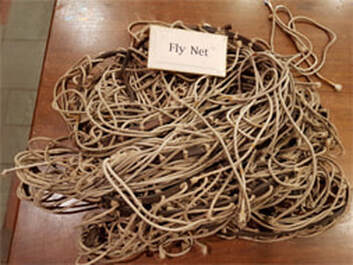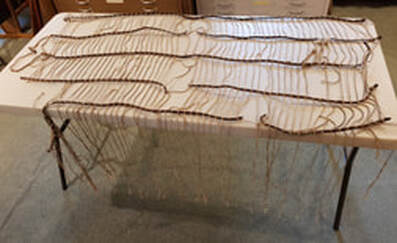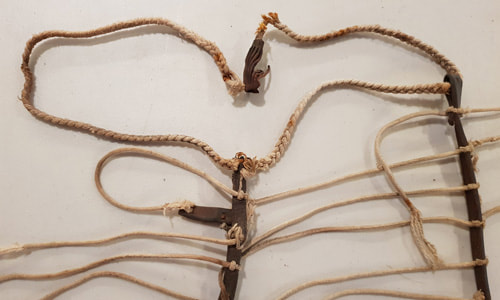|
10/31/2020 No, It Didn't Catch Flies Those of us who did not grow up around farms or horses are at a disadvantage when tasked with identifying items from Acton’s agricultural past. A recent clean-up and inventory of our barn uncovered a heap of knotted strings. There was a label nearby that simply said “Fly Net.” This seemed impossible to the skeptical among us; we could not (and did not want to) imagine a fly with a wingspan that could be caught by the openings between the knots. As so often happens, it turns out that older members in our society knew something we didn’t. We now know that a fly net was worn by a horse. Obviously, it could not catch the flies, but its movement with the horse's would help to keep flies from settling. According to W. R. Runyan’s 1001 Words and Phrases You Never Knew You Didn’t Know (2011), the large openings were necessary to keep the horse from overheating. Spread out, the fly net turned out to have leather pieces attached to the strings, long strings hanging from each side, and braids at one end. Trying to keep one's horses from being irritated by flies was, and remains, a problem. Another blog post mentioned Hanson Littlefield's Anti-Fly concoction marketed from West Acton. We do not know how well that worked, but clearly farmers had worked out other solutions.
And now we know not to dismiss a heap of string in our barn. Comments are closed.
|
Acton Historical Society
Discoveries, stories, and a few mysteries from our society's archives. CategoriesAll Acton Town History Arts Business & Industry Family History Items In Collection Military & Veteran Photographs Recreation & Clubs Schools |
Quick Links
|
Open Hours
Jenks Library:
Please contact us for an appointment or to ask your research questions. Hosmer House Museum: Open for special events. |
Contact
|
Copyright © 2024 Acton Historical Society, All Rights Reserved


 RSS Feed
RSS Feed